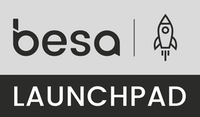Who do I consult about our school's PSHE provision?

Why consult?
Personal, Social, Health & Emotional education (PSHE) is an important part of every pupil’s education. It is an area of the school curriculum that has often been overlooked and given a low priority. However, with Relationships, Sex and Health Education (RSHE) for secondary schools and Relationships and Health Education (RSE) for primary schools having become statutory in all state schools in England in September 2020, PSHE can no longer be left to chance or fitted in when there is nothing ‘more important’ to do.If we accept the value of PSHE in helping pupils develop the knowledge and life skills that will help them safely navigate the journey to adulthood, then the next step is making sure that the PSHE provision on offer is going to do that job to a good standard and that’s where consultation comes in.
Who should I consult with about our PSHE provision?
There are number of ‘stakeholders’ you should consult with when developing your PSHE programme.- Pupils
- Pastoral leadership/Head teacher
- Teaching team
- Parents/carers
- Governors
There may be other agencies that you work with, for example school nurses, charities, volunteers who are also useful to consult with, however, the 5 groups above will always be key to your consultation process.
We will look at each of these groups in turn to consider the best way to move forward with consultation, why it’s important and the possible pitfalls you might encounter along the way.
How do I effectively consult with pupils on PSHE?
Students are the most important stakeholder in this process, after all it is their entitlement to good quality PSHE that is driving the consultation process. The best way to find out what your students need from their PSHE programme is to ask them. This may sound obvious, but it doesn’t happen that often and where it does, is sometimes piecemeal and ineffective.
And we don’t mean just asking a few student council members to come up with some ideas off the top of their head. An effective school council will themselves be consulting with their peers and representing their views, but how confident are you that this is happening?
The best way to find out what your students need from their programme is via a well-designed, anonymous survey that everyone completes. This will provide you with the information you need to ensure your PSHE programme meets the needs of all your students. We know that every setting is unique so having the information to ‘bespoke’ your programme ensures the best experience for your students. There will always be some students with complex, additional needs that require individual interventions, but we are assuming that you have identified these pupils and providing support.
Of course you will want to have on-going conversations too and include more qualitative insights and this is where your student council can play an important role in helping contextualise your quantitative finding. However, in our experience the best starting place is a good quality survey that provides a baseline you can build from and excellent evidence of student consultation.
What should I ask pupils about in a PSHE survey?
The aim of the survey is to identify student needs, level of knowledge, behaviour and perceptions. It is also useful to ask about your current PSHE provision, so you know what’s going well and what needs improvement.
It is likely that you will have slightly different surveys for younger and older students as some questions may not be relevant or age-appropriate for some students. It’s also important to keep the survey short enough that it can be completed in around 10 minutes.
What do I do with the data I’ve collected from my PSHE survey?
Analysing data lets you see how you can tailor your programme to student needs. For example, if you discover that 98% of your students don’t smoke, it doesn’t make sense to devote hours of lessons to tobacco education. Similarly, if you discover that some of your pupils are uploading explicit images of themselves you will want to focus on this area.
When it comes to feedback on your PSHE programme it is easy to find out the areas that are resonating with students and those that don’t. Clear trends usually emerge around the areas where schools are doing good work – often; drugs and alcohol, contraception, STIs, online safety and where things are a bit haphazard; pornography, mental health, budgeting and finance. That’s not to say your setting will get those results, but there will almost certainly be areas of PSHE that are covered very well and others not so well.
It’s important to share the results with students and you can also use the results in PSHE lessons to bring them to life and start discussions. Students are usually keen to talk about themselves!
When you consult fully with students and have good quality data about your cohort it is very common for students, staff and parents to be quite surprised about the good behaviour choices of the vast majority of students.
We often use smoking as an example as there is still a lot of misperceptions around the prevalence of smoking. The ‘everyone’s doing it’ belief prevails and the only way to challenge it is to ask the pupils about their behaviour. In fact, smoking figures in the UK are the second lowest in Europe (after Sweden) and very few young people smoke cigarettes. We are moving towards a smoke-free generation driven by young people choosing not to smoke.
We recommend this thorough approach to both secondary and primary schools and even the youngest pupils can give their views with some teacher help. Special educational needs settings can also consult with pupils and in general are very good at modifying lessons to meet individual student need.
Not only will this enable you to provide a PSHE programme that is a great fit for your pupils, but you will also be able to let Ofsted or other school inspectors see how you bespoke your provision to student need using evidence to make your decisions.
What are the potential pitfalls of consulting with students on PSHE?
Not asking the right questions. Your data will only be useful if you ask the right questions and students understand what you’re asking
Time constraints. If takes a lot of time to plan and design a survey and analysing data is also a time-consuming job
Technical problems – if an online survey crashed half-way through it is frustrating and difficult to recover from
Survey is too long – student concentration will drop off a cliff after around 10 minutes
Slow readers – some students will need some help if their reading skills aren’t strong
Complaints from parents. If you are asking for personal information, even if it’s anonymous it is always best to get consent from parents.
Poor return rate. This should not happen in a controlled environment like a school unless other staff members don’t instruct students to complete the survey. Part of your planning should be to make sure everyone is on board and decide on a short time frame for completion.
How do I consult with my teaching staff about PSHE?
One of the main barriers to good quality PSHE delivery has been inconsistency. This happens both across and within schools. Some staff are happy to teach PSHE, but others are not. This can be due to lack of confidence or subject knowledge or even a belief that it is not their responsibility. This is entirely understandable as there is little or no PSHE input during Initial Teacher Training courses and it can often come as a shock when teachers are thrown in at the PSHE deep end!
Whether you are in the fortunate position of having a dedicated PSHE teaching team or lessons are delivered by a wide range of teachers it’s crucial to consult with them about the programme. You can do this by:
- Ensuring everyone knows about schools’ statutory responsibilities to deliver PSHE
- Sharing results of your student consultation
- Giving opportunities for staff to voice their concerns
- Find out what CPD may be required
PSHE is more effective when a ‘whole school’ approach is taken. When everyone is on board and knows what’s happening when across the school year a more cohesive and integrated PSHE programme develops. This often enables staff to support each other as well as provide consistency to pupils.
What are the potential pitfalls of consulting with staff on PSHE?
- Opportunity to air negative views about PSHE. If a member of staff is so ‘anti’ PSHE you really don’t want them on your team. Ask them to listen during the consultation and speak to you individually at the end, rather than disrupt the meeting.
- Anxieties about time to prepare lessons, lack of experience etc. – If you prepare in advance for these common concerns and have solutions to reassure your delivery team this should overcome the problem.
- General lack of interest in PSHE. If this is the case it is important to involve senior leadership to explain the importance of PSHE to the overall curriculum and the statutory requirements to deliver an effective, high quality programme.
Why is consultation with pastoral leadership about the PSHE programme so important?
A big part of any PSHE programme is safety and safeguarding, this is particularly relevant in the new statutory RSE/RSHE framework. Senior leadership and pastoral leads are ultimately responsible for the safety of students in their care so there is a clear overlap in these two areas.
In addition, senior leadership are responsible for implementing and updating policies so you will need to know where your PSHE policy sits within other school policies or if you have a separate PSHE policy how it is cross-referenced to others.
It is also very important to have senior leads in school committed to the PSHE programme as they will provide the authority and correct messaging about how it is prioritised in the curriculum.
How do I consult with parents/carers about PSHE?
Consultation with parents/carers about PSHE and particularly sex education strikes fear into the heart of many teachers and understandably so! The media loves to portray ‘outrage’ about what is being taught in school and will often sensationalise mundane events to grab a headline. This can lead to some parents reacting angrily to misinformation.
It is also likely that parents have not experienced good PSHE when they were at school. Did you? Probably not, so it’s easy to jump to the wrong conclusions.
The key here is to consult with parents BEFORE a new programme is introduced and provide them with a clear rationale about not only what your statutory responsibilities are but also why it is important to prepare their children for adulthood, keep them safe and give them the skills and knowledge they need to make responsible and respectful choices.
It is good practice to inform parents via your school website or newsletter of any changes you are making to the PSHE programme and invite them to comment if they wish to do so. If there appear to be lots of concerns or questions setting up an open meeting where parents/carers can come into school, hear face-to-face about your programme and have an opportunity to ask questions is a good solution.
We have run these meetings countless times and occasionally there are one or two parents who have serious objections; however, most parents/carers are reassured that you are doing everything you can to support their children and tend to be very supportive and happy that the school is taking on this role as it helps them with the difficult conversations!
There is a useful DfE guidance document on parent/carer consultation that has been written for primary schools but is also useful for secondary schools.
To summarise:
- Let parents/carers know what you’re doing in PSHE via your school website or newsletter
- Invite them to comment or get in touch
- Arrange an open meeting, particularly if there are a lot of comments or worries
- Explain your rationale – this is a good time to use data collected from students
- Focus on safety and safeguarding
- Give reassurance on age-appropriateness of content
- Explain parents right to withdraw students from sex education. Be clear on what this does and does not cover
- Be sensitive to concerns, but ultimately you have a statutory responsibility to fulfil
- At the start of a meeting agree some ‘ground rules’ similar to those you would use at the start of a PSHE lesson
What are the potential pitfalls of consulting with parents on PSHE?
- Disruptive parents/carers de-railing the meeting. Have a senior colleague available to take disruptive individuals to another room if they are de-railing the meeting. This is not usual, but it’s best to work with them individually if this happens rather than in a large group.
- Parents/carers with own agenda. Sometimes individuals with very strongly held views try to use the meeting as a platform to share their views, no matter how inappropriate they are. Other parents/carers often close them down, however, it is useful to have a senior colleague who can remove them from the meeting and speak with them individually.
- Parents/carers record the meeting. You may be asked if the meeting can be recorded for someone who isn’t present, however, the answer to this should always be a firm NO. Inform the group that the meeting should not be recorded. Anyone unable to attend can contact you separately
- A parent/carer asks a question you can’t answer. If the question is relevant to the context of the meeting, admit you don’t know the answer and assure them you will find out and get back to them. If the question is not relevant to the meeting, signpost them to where they can find the answer.
How do I update and consult with Governors on PSHE?
Governors together with the head teacher are responsible for making sure the school provides a good quality education for all pupils. Governors aim to promote effective teaching and learning when setting the policies and aims of the school.
Your board of governors should include a governor who is responsible for personal development and PSHE. This individual should be kept up to date with your programme and how you have consulted with others as part of the process of introducing changes to your programme, a new programme or updates to policy. It may not be you who attends Governors’ meetings to present this information and take feedback, however, it is likely that as PSHE lead you will prepare anything that is to be presented to governors. In general governors will be very interested in student views and sharing headline data from your student survey is likely to be welcomed.
There are core functions of the governing body that are very relevant to PSHE including stakeholder relations, being accountable to stakeholders, policy development and risk management. As you can see consultation is at the heart of stakeholder relations and when it comes to risk management a spiral, progressive PSHE programme will help pupils effectively manage risks.
We hope this article has given you some useful information on the importance of consultation about PSHE and some things to think about when putting a consultation process in place. Please feel free to leave any comments below.




